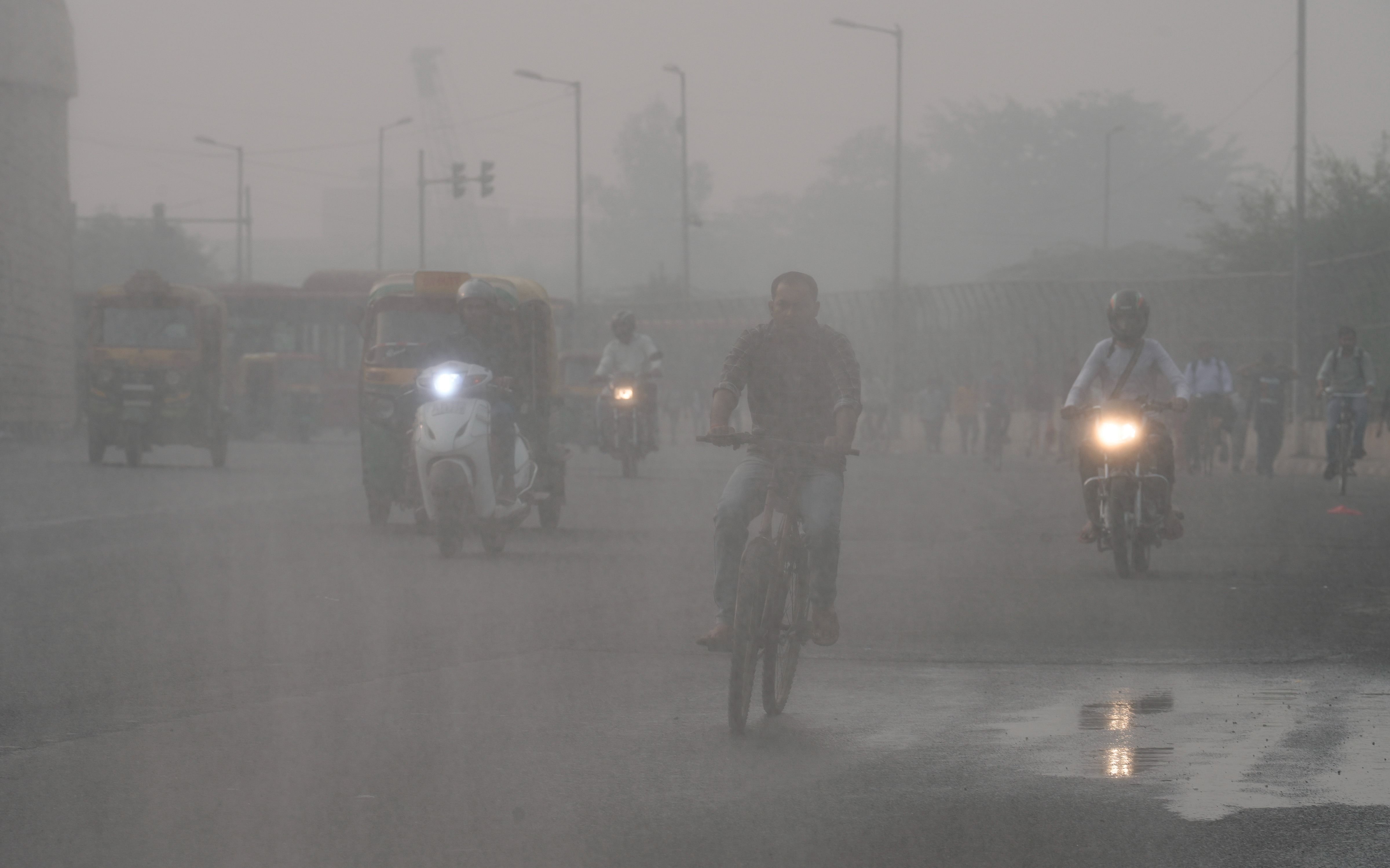
The air pollution in Delhi ameliorated from severe to very poor on Saturday due to favourable wind speed and a dip in the contribution of stubble burning.
The 24-hour average air quality index stood at 381, a considerable improvement over the AQI of 447 a day ago, according to the Central Pollution Control Board. It had jumped to 450 on Thursday, just a notch short of the 'severe plus' category, prompting the authorities to invoke the final stage of anti-pollution curbs, including a ban on non-BSVI diesel light motor vehicles.
The air quality is likely to slip back into the severe category on Sunday morning due to shallow fog and improve thereafter, said Mahesh Palawat, vice president of meteorology and climate change at Skymet Weather.
"The wind direction will change frequently over the next few days due to back-to-back western disturbances. Hence, the net result will be very poor air quality," Palawat said. In a bid to reduce vehicular emissions, Environment Minister Gopal Rai appealed to the Uttar Pradesh and Haryana chief ministers to take measures to divert trucks carrying non-essential goods on peripheral expressways to avoid traffic jams at the capital's borders.
According to Safar, a forecasting agency under the Ministry of Earth and Sciences, the share of stubble burning in Delhi's PM2.5 pollution dropped to 21 per cent on Saturday from 30 per cent on Friday due to unfavourable transport-level winds.
Transport-level winds blow in the lowest two layers of the atmosphere --troposphere and stratosphere -- and carry smoke from farm fires to the National Capital Region. Chief Minister Arvind Kejriwal and his Punjab counterpart, Bhagwant Mann, had owned responsibility on Friday for paddy straw burning in the agrarian state and promised to curb the practice by the next winter.
The number of stubble-burning incidents in Punjab rose by 12.59 per cent year-on-year to 26,583 in the last 50 days with a spurt in such cases after Diwali, according to Indian Council of Agricultural Research. In comparison, the number of paddy stubble-burning events in Haryana, Uttar Pradesh, Rajasthan, Madhya Pradesh and Delhi remained lower between September 15 and November 4 this year, the data stated.
The hazardous pollution levels prompted the Delhi government to announce on Friday that primary schools would remain shut from Saturday and 50 per cent of its staff will work from home, while private offices have been advised to follow suit. A six-member panel chaired by the special commissioner of transport has been set up to monitor the implementation of curbs on anti-polluting activities.
Revenue commissioners have been asked to prepare a plan for staggered timings of markets and offices. In a bid to ramp up public transport, the government will also launch 'Paryavaran Bus Service', which will include 500 privately-run CNG buses. Kejriwal had said the odd-even car rationing scheme would be implemented if need arises and discussions on it were on. According to a study conducted by The Energy and Resources Institute in 2018, vehicular emissions account for around 40 per cent of the PM 2.5 pollution in the capital.